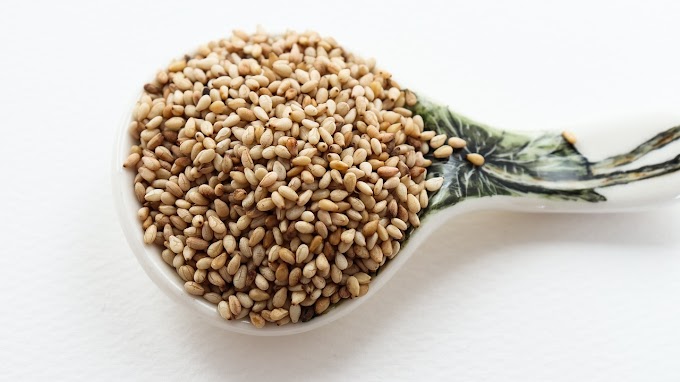Ayurveda and Yoga: for Holistic Well-Being
Introduction
Ayurveda, an ancient system of natural healing originating in India over 5,000 years ago, derives its name from the Sanskrit words "Ayur" (life) and "Veda" (knowledge), often referred to as the "science of life." It emphasizes the balance of mind, body, and spirit to achieve optimal well-being. In this article, we delve into the world of Ayurveda, exploring its principles, practices, and profound impact on overall health.At the core of Ayurveda lies the concept of three doshas: Vata, Pitta, and Kapha. These doshas represent unique combinations of the five elements (earth, water, fire, air, and ether) present in the human body.

1. The Core Principles of Ayurveda
Ayurveda recognizes that each individual possesses a unique constitution, known as Prakriti, determined by the predominant dosha(s) in their body. One's Prakriti plays a vital role in tailoring a personalized lifestyle and dietary recommendations for improved well-being.
2. The Role of Diet in Ayurveda
Ayurveda places significant emphasis on the connection between nutrition and health. Following a diet that aligns with one's dosha can help prevent imbalances and promote digestion, metabolism, and overall vitality.
3. Herbal Medicine and Remedies
Ayurvedic medicine often utilizes a wide array of herbs and natural remedies to address various health issues. These herbs, with their potent healing properties, are believed to restore balance and promote well-being.
4. Detoxification and Cleansing
Ayurveda recommends periodic detoxification to eliminate toxins (Ama) from the body. Panchakarma, a renowned Ayurvedic cleansing regimen, involves treatments that rejuvenate the body and mind.
5. Yoga and Meditation
Yoga and meditation are integral components of Ayurveda, designed to harmonize the mind and body. Regular practice enhances flexibility, reduces stress, and fosters emotional balance.
6. Ayurvedic Massage and Body Therapies
Ayurvedic massages, such as Abhyanga, Shirodhara, and Pinda Sweda, provide profound relaxation and rejuvenation. These therapies also stimulate circulation, promoting overall health.
7. Seasonal Routines
Ayurveda acknowledges the impact of seasons on our bodies and prescribes seasonal routines to maintain balance with nature. Adapting lifestyle practices to seasonal changes cultivates better well-being.
8. Mental Health and Emotional Balance
Ayurveda recognizes the significant influence of the mind on health. Techniques like mindfulness and specific Ayurvedic herbs help promote mental clarity and emotional equilibrium.

Ayurveda recognizes that each individual possesses a unique constitution, known as Prakriti, determined by the predominant dosha(s) in their body. One's Prakriti plays a vital role in tailoring a personalized lifestyle and dietary recommendations for improved well-being.
2. The Role of Diet in Ayurveda
Ayurveda places significant emphasis on the connection between nutrition and health. Following a diet that aligns with one's dosha can help prevent imbalances and promote digestion, metabolism, and overall vitality.
3. Herbal Medicine and Remedies
Ayurvedic medicine often utilizes a wide array of herbs and natural remedies to address various health issues. These herbs, with their potent healing properties, are believed to restore balance and promote well-being.
4. Detoxification and Cleansing
Ayurveda recommends periodic detoxification to eliminate toxins (Ama) from the body. Panchakarma, a renowned Ayurvedic cleansing regimen, involves treatments that rejuvenate the body and mind.
5. Yoga and Meditation
Yoga and meditation are integral components of Ayurveda, designed to harmonize the mind and body. Regular practice enhances flexibility, reduces stress, and fosters emotional balance.
6. Ayurvedic Massage and Body Therapies
Ayurvedic massages, such as Abhyanga, Shirodhara, and Pinda Sweda, provide profound relaxation and rejuvenation. These therapies also stimulate circulation, promoting overall health.
7. Seasonal Routines
Ayurveda acknowledges the impact of seasons on our bodies and prescribes seasonal routines to maintain balance with nature. Adapting lifestyle practices to seasonal changes cultivates better well-being.
8. Mental Health and Emotional Balance
Ayurveda recognizes the significant influence of the mind on health. Techniques like mindfulness and specific Ayurvedic herbs help promote mental clarity and emotional equilibrium.

9. Ayurveda and Modern Science
Modern scientific research has shown a growing interest in Ayurveda's principles and its potential to complement conventional medicine. Studies explore Ayurvedic treatments for various health conditions.
10. Ayurvedic Skincare and Beauty
Ayurvedic skincare practices utilize natural ingredients to enhance beauty and maintain healthy, radiant skin. These remedies are gentle on the skin and free from harmful chemicals.
11. Ayurveda for Digestive Health
Ayurveda places great importance on maintaining a healthy digestive system. It offers valuable insights into dietary choices and lifestyle habits to improve digestion.
12. Ayurvedic Approach to Sleep and Rest
Getting sufficient restful sleep is crucial for overall well-being. Ayurveda recommends specific practices and herbal remedies to support a peaceful sleep routine.
13. Ayurveda and Women's Health
Ayurveda addresses various aspects of women's health, providing guidance for menstrual health, hormonal balance, and overall well-being during different life stages.
14. Integrating Ayurveda into Daily Life
Incorporating Ayurvedic practices into daily life does not require drastic changes. Simple adjustments in diet, lifestyle, and self-care routines can yield significant benefits.
Conclusion
Ayurveda, with its ancient wisdom and holistic approach to healing, continues to inspire millions worldwide. By aligning mind, body, and spirit with nature, Ayurveda empowers individuals to lead a balanced and fulfilling life. Embracing this time-tested health system can be a transformative journey toward perfecting well-being and vitality.FAQ's
Is Ayurveda safe to use alongside conventional medicine?Ayurveda can complement conventional medicine, but it is essential to consult with healthcare professionals when integrating Ayurvedic treatments.
Are Ayurvedic herbs and remedies easily accessible?
Yes, Ayurvedic herbs and remedies are widely available in health stores and online, ensuring easy accessibility for those interested.
Can Ayurveda benefit mental health conditions?
Ayurveda's holistic approach may support mental health, but it should not replace professional mental health care when needed.
Can anyone practice Ayurveda at home?
Individuals can incorporate Ayurvedic practices at home, but consulting an Ayurvedic practitioner for personalized guidance is recommended.
Is Ayurveda suitable for children?
Ayurveda can be adapted for children, promoting their well-being and nurturing their overall health. However, expert advice is advisable for specific concerns.







